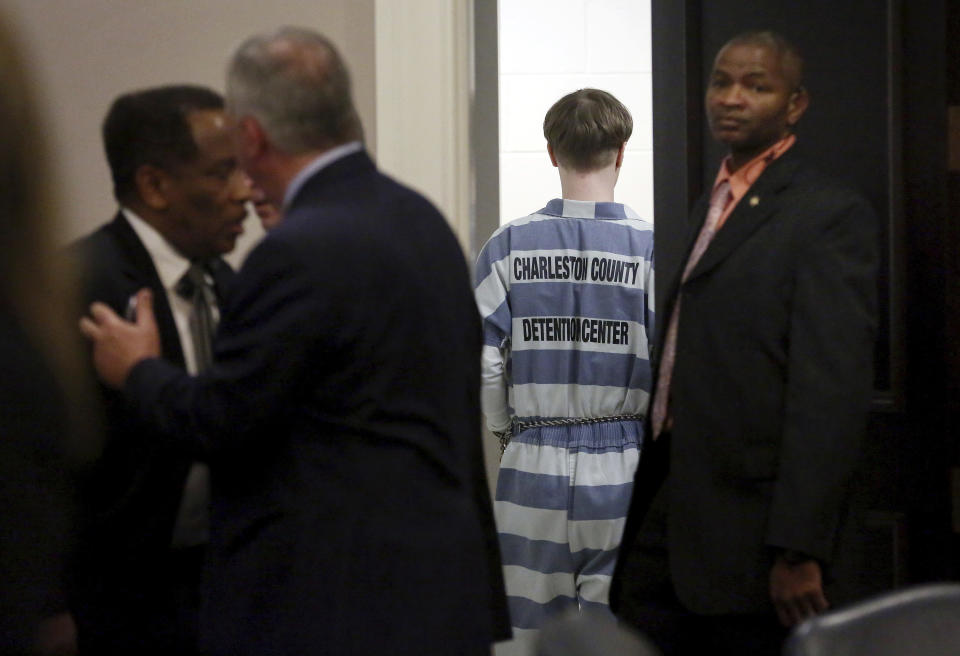Roof feared mental state might block white nationalists job
COLUMBIA, S.C. (AP) — Dylann Roof fought so hard to keep evidence of any mental problems out of his trial because he worried it would prevent him from getting a high government position if white nationalists took over the county, according to court documents from his lawyers.
At about the same time before his death penalty trial started last year, Roof called his lawyers liars and said they should be disbarred because they were "the sneakiest group of people I have ever met," according to once secret court documents made public Tuesday.
A judge unsealed hundreds of pages of documents about Roof's mental state the day after his legal journey ended with him pleading guilty to nine counts of murder in South Carolina court for his racist attack that killed nine black people during a Bible study at a Charleston church in June 2015.
Roof agreed to a sentence of life without parole in state court and no appeals in return for prosecutors dropping the death penalty. Roof is heading to federal death row after a jury found him guilty of hate crimes in the killings at Emanuel AME church. He is appealing that decision.
Roof's chief lawyer, David Bruck, did not return a message from The Associated Press on Tuesday.
Roof was adamant throughout his trial that he didn't want any evidence of mental defects presented in his defense, with his lawyers arguing that meant he was essentially agreeing to be put to death. Roof acted as his own lawyer for parts of his trial because he wanted to control the evidence provided.
Just days after Roof wrote his letters to prosecutors saying his lawyers were working against him, attorney Sarah Gannett discussed Roof's anger at possibly being found mentally incompetent in a motion requesting more time to conduct a hearing to determine if Roof was competent to be his own lawyer.
A ruling Roof was incompetent may make white nationalists he considered allies abandon him, Gannett wrote.
"We remind the Court that these are not logical preferences, but appear to be based on the irrational belief that being labeled mentally impaired will affect the defendant's standing with some hypothetical white nationalists whom the defendant has never met or communicated with — and cannot even name — but whom he believes may appoint him to a high government position some day," Gannett wrote.
Roof's relationship with his lawyers rapidly fell apart before jury selection in his trial began in November. He wrote a three-page letter addressed to "prosecution" complaining his well-respected defense team was using scare tactics, threats and manipulation to further their agenda to fight the death penalty instead of listening to how Roof wanted to defend himself.
"They are extremely moralistic about the death penalty, but unfortunately when it comes to lying they do not have any morals at all," Roof wrote.
Roof presented no evidence or witnesses during his trial. He said at the time he didn't want them to introduce mental health evidence because it would embarrass himself and his family.
___
Follow Jeffrey Collins on Twitter at http://twitter.com/JSCollinsAP . His work can be found at http://bigstory.ap.org/content/jeffrey-collins .




